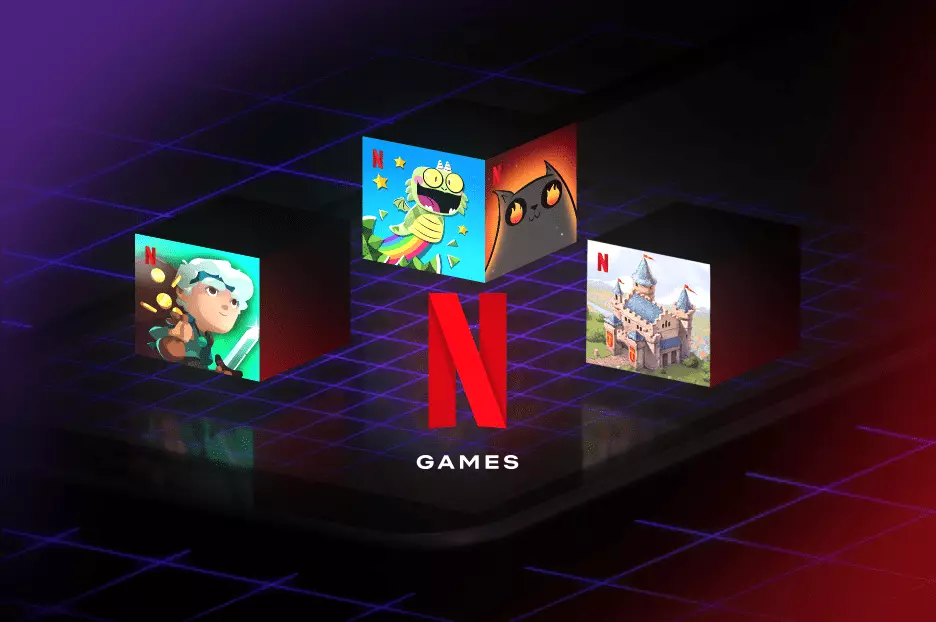Just five months after Netflix Games expressed its grand ambitions for generative AI in game development, it seems those hopes have been swiftly dashed. The unexpected departure of Mike Verdu, appointed as vice president in charge of AI innovation, marks a significant moment in not only the trajectory of Netflix’s gaming endeavors but also raises critical questions about the future viability of integrating AI into gameplay. Verdu’s initial enthusiasm was palpable; he professed that generative AI was an exhilarating frontier akin to the 90s gaming revolution, where creativity flourished and innovation was a monthly hallmark. Yet, this bold vision sits in stark contrast to the reality Netflix faces today—one marked by uncertainty and hesitance.
Enthusiasm Without Substance
Verdu’s effusive promotion of generative AI in his LinkedIn communications painted a rosy picture of what the incorporation of such technology could achieve. He invoked nostalgia for a time when the gaming landscape was rapidly evolving, presenting a dazzling array of new and engaging experiences. However, the enthusiasm Verdu expressed was surprisingly devoid of tangible outcomes or detailed plans. This raises an important question: Can excitement alone carry a technology through the logistical and creative mazes of game development? The answer seems to be no, especially given the broader context of Netflix’s operational challenges, including recent significant layoffs.
His inability to provide a detailed roadmap for how generative AI could facilitate smoother software development processes suggests that either the technological integration is fraught with complexities that remain unresolved or, worse yet, that Netflix may have rushed to herald a solution without the groundwork to sustain it. An ideal vision must be backed by meticulous planning and solid strategy—not just buoyant aspirations.
The Hurdles Ahead
With Verdu’s abrupt exit, Netflix now finds itself at a crossroads. His absence casts a shadow over the future of their gaming projects, particularly those that hoped to leverage generative AI as a linchpin of innovation. The company currently appears disoriented, especially without appointing a clear successor to steer the generative AI initiatives. As existing projects like “Squid Game: Unleashed” provide a modicum of success, they’re not entirely homegrown; they rely on Netflix’s licensing capabilities.
Interestingly, the most substantial downloads come from established titles like “Grand Theft Auto,” highlighting that Netflix’s proprietary gaming efforts may not be penetrating the market as hoped. This raises critical concerns about whether Netflix should continue to allocate resources toward developing its own games, or if it should downsize its ambitions and license more popular existing franchises instead. The implications of such decisions could ultimately shape Netflix’s brand identity within the gaming sphere.
The Illusion of Unlimited Potential
In a media landscape increasingly punctuated by disappointments and pivoting strategies, the notion of “unlimited potential” becomes increasingly questionable. While Verdu’s rhetoric echoed a utopian vision of gaming innovation, the mechanisms of achieving such breakthroughs are often far more tangled and complicated. The very technology that is supposed to usher in a new age of gaming creativity must grapple with existing market dynamics, cultural complexities, and substantial developmental challenges.
Netflix’s initial excitement about generative AI may have overlooked fundamental concerns about audience engagement and market relevance. As game development becomes intertwined with streaming and subscription models, the learning curve for exciting and innovative integrations could be steeper than anticipated. While AI promises efficiency and novelty, its practical implementation necessitates foresight and strategic execution, both of which seem lacking according to recent developments.
A Long Road Ahead
The unfolding narrative around Netflix Games and generative AI highlights a critical lesson: The road to innovation is often fraught with unforeseen challenges. As the dust settles from Verdu’s departure, Netflix must carefully consider its next steps. Will it double down on its quest to develop original games, or will it concede to the marketplace realities that call for a more tempered approach?
Ultimately, the gaming landscape continues to evolve, and the next wave of innovation will likely not arise from mere optimism and failed promises. It requires sustained focus, balance, and strategic investments—qualities that Netflix must cultivate if it aims to stand out in an already crowded entertainment ecosystem. The once-gleaming prospects of generative AI might serve as a stark reminder that in technology, as in life, anticipation must be grounded in rigorous execution.

